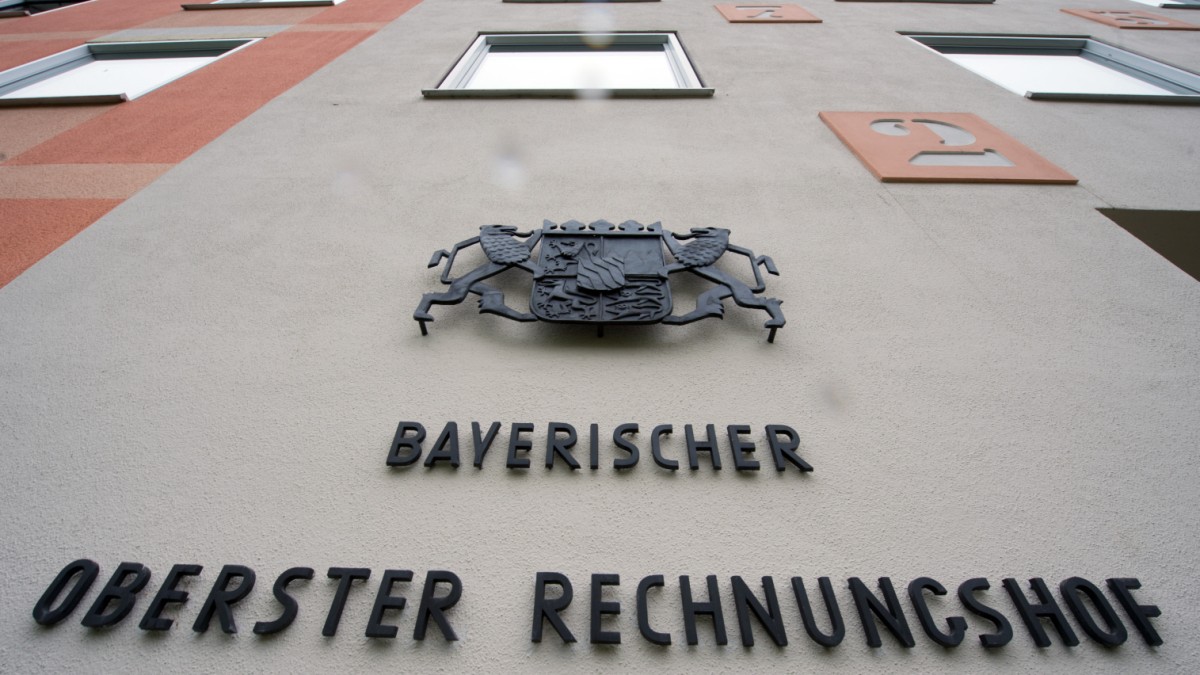During the corona pandemic, private clinics in Bavaria often wrongly received so-called retention allowances from the state government. The Bavarian Supreme Court of Auditors (ORH) criticizes this in its current report. It is about an amount of more than twelve million euros. The pandemic and the resulting strain on the national budget are again a focus of the report. The report will be published this Tuesday and was delivered to the state parliament on Monday.
The ORH calls on the state government to exercise strict spending discipline. Because of their anti-corona measures, the state’s debt could otherwise “in the worst case” swell to 44.6 billion euros by the end of 2023 – which would be record-breaking. The ORH assesses the previous course of finance minister Albert Füracker (CSU) as “positive”. However, when it comes to the energy crisis, he questions the Bavarian hardship fund: it must be carefully examined whether the Free State should even be allowed to take and finance its own measures in addition to federal aid.
Bavaria was the only federal state in the corona pandemic to also grant private clinics a provision fee for keeping patient beds and treatment capacities free. It amounted to 280 euros per bed and day. According to the ORH, a number of private clinics received illegal double or even triple grants from the federal and state governments. In addition, many registered short-time work and at the same time received the provisional allowance.
A particularly blatant case concerns a private clinic that sent 60 percent of its staff on short-time work, receiving 147,000 euros in short-time work benefits and at the same time receiving a lump sum of 1.35 million euros. But that is not possible, says the ORH. Because the provision fee was paid for the fact that the respective beds and treatment capacities are available. If a large part of the clinic staff is on short-time work, this is not possible. The ORH demands that the Free State reclaim the money wrongly paid.
Ten mountain bikes for 42,000 euros
At the same time, the ORH complained about blatant waste in the Ministry of the Environment. Minister Thorsten Faithr (FW) spent more than 100,000 euros on a bicycle campaign in 2020 to purchase 50 bicycles – including ten mountain bikes for almost 42,000 euros and three e-cargo bikes for 14,000 euros. Completely “inappropriate”, judges the ORH, especially since the bicycles – if at all – are mainly used privately by ministry employees or even not at all. The ORH also criticizes that a ministry employee who is specifically there to organize cycling promotions spends a significant part of his working time advising colleagues.
The ORH also sharply criticizes the Bavarian State Forests (BaySF). The state-owned company, which manages the state forests in Bavaria and reports to the Ministry of Agriculture, narrowly avoided insolvency in 2021, among other things due to management errors. The background to the corporate crisis was the bark beetle plague in Bavaria and the massive slump in wood prices that followed.
The allegation of the ORH: The BaySF management misjudged both and paid a high amount of millions to the state budget in 2018 instead of adding it to the liquidity reserves. A lot of money has also been invested in projects that are not part of BaySF’s core business, such as a managed mountain hut near Garmisch-Partenkirchen. According to the report, bankruptcy could only be prevented by a large bridging loan and other emergency measures.
The ORH is also harsh with the district offices. The accusation: You are withholding millions in revenue from the Free State. It is about the penalties that the district authorities can impose if someone stubbornly refuses to comply with their orders. The income of the 71 district offices in the Free State doubled between 2015 and 2019 to around 2.8 million euros a year.
A check by the ORH has now revealed that nine of 28 district offices have either not paid their income from the fines at all or only partially to the Free State – although they are entitled to it. From 2012 to 2021 there was a deficit of 1.4 million euros. The actual amount that the Free State missed is likely to be significantly higher. The sloppiness in the billing is so great that until the ORH checked, nobody knew exactly how much penalty money was collected in the respective district office.


